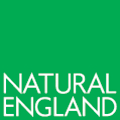What is your role in the Predatory Bird Monitoring Scheme?
My main role in the PBMS is statistically analysing the data. I assess temporal and spatial change in the exposure of various birds to chemical contaminants (e.g., metals, SGARs, etc.), estimate the impact of the contaminants on the birds’ population, and determine possible environmental and biological parameters influencing the exposure. I also publish the results of the analysis in various forms, including contract reports, annual reports, scientific papers, and oral/poster presentations at meetings or international conferences.
How did you get involved in the PBMS?
After achieving an undergraduate degree in Geology in Japan, I worked on a highway construction project in Africa, where I became conscious of the chemical pollution caused by human activities. After its contract, I re-started my study in Ecology and Ecotoxicology and obtained a PhD in Ecotoxicology about the exposure of small mammals to metallic contaminants in France.
After my PhD study, I worked as a Contractual Assistant Lecturer and Researcher in France, during which I found an offer for a researcher as a vertebrate ecotoxicologist, which particularly focuses on the exposure of birds to chemical contaminants in the UK. Given that the task of the job is related to my thesis’ subject and that I am always fascinated by birds, I sent my application for the position and, luckily, got the current job related to the PBMS.
What is your favourite bird of prey, and why?
Owls. I have liked birds in general since my childhood. However, as I grew up in big cities in Japan, such as Tokyo, I only had a few opportunities to see birds of prey. Therefore, my preference for owls is based on the image of these birds: a large cute face with forward-facing eyes, a symbol of wisdom and vigilance, etc.
I became a bit familiar with birds of prey when I was in France. I had some opportunities to observe some birds of play, like buzzards and red kites, and manipulate Barn owl pellets during my study. I don’t intend to actively observe owls because I don’t want to disturb their lives. However, I always like them.







